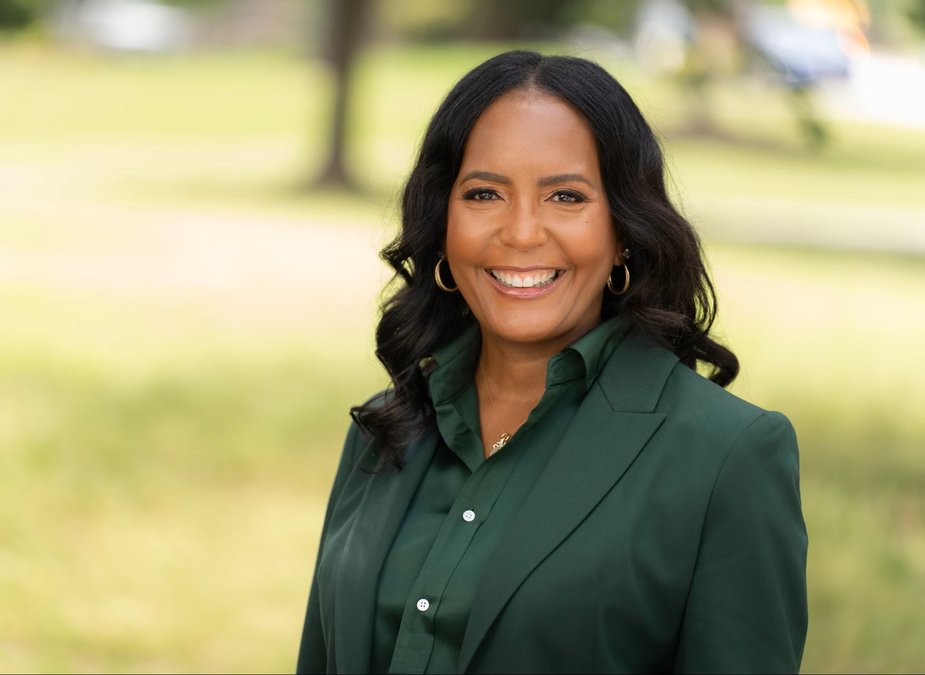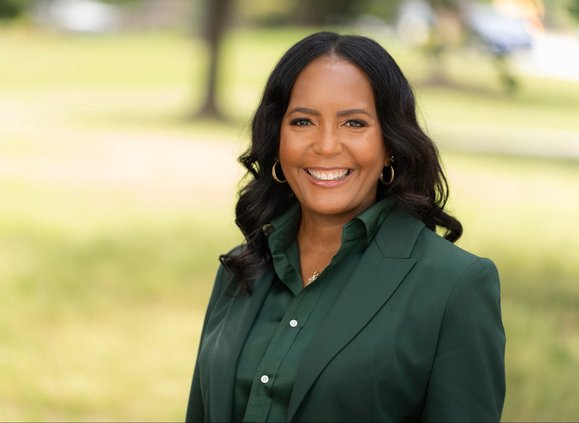Being mayor of Atlanta took Keisha Lance Bottoms across the country and the world. Her run for governor is taking her across the state.
The former Atlanta mayor was in Liberty County last week as she embarks on her run for the state’s top office. She served one term as mayor, from 2018--22.
“I always said I didn’t know if it was the end of my life in public service,” Bottoms said after deciding not to run for re-election.
For her, she said, the turning point was the day after the presidential election.
“I woke up wondering what I was called to do in this moment,” she said.
Bottoms is in a crowded race among Democrats to succeed Gov. Brian Kemp, who cannot run for another term. Former state labor commissioner Michael Thurmond and state Sen. Jason Esteves also are vying for the Democrat nod.
But Bottoms points to her leadership of Atlanta, not only during the first Trump administration but also during the COVID-19 pandemic.
“I know what solid leadership means in moments of chaos,” she said. “I believe we are in that moment again. There is a lot of uncertainty that is being created, a lot of anxiety that is being felt because of some of the policies that are coming out of Washington, D.C. The layoffs of the federal workforce, we know 30% of our federal workforce is comprised of veterans. That’s created a lot of uncertainty.”
Bottoms said one of her priorities will be to expand Medicaid in Georgia. She said more than 300,000 Georgians could not access Medicaid even before what she referred to as the “big ugly bill” that President Trump proposed, calling it a “big, beautiful bill,” and Congress passed.
“We are leaving $700 million on the table,” Bottoms said of the lack of full Medicaid expansion. “We love to beat LSU and Alabama in football, but we’ve allowed Louisiana and Alabama to beat us in health care.”
The president’s spending plan threatens 1.2 million Georgians with higher premiums, Bottoms said, and could cut as many as 93,000 people from the rolls of health coverage. She also noted that 25% of Liberty County residents rely on Medicaid, and 49% of kids rely on CHIP, or the Children’s Health Insurance Program, also known as PeachCare.
“We’ve got to be serious about the health and welfare of this state, especially our most vulnerable,” she said. “When people don’t have access to health care, they are not getting their chronic conditions treated. We lead in diabetes and high blood pressure; these are chronic conditions that can be managed.”
Bottoms also said she wants to find ways to keep trained doctors and nurses in the state after they complete their education in Georgia.
“We have some of the best institutions training people in the state, from the Medical College of Georgia to Emory University to Morehouse,” she said. “We’ve got great institutions of higher learning but we still have counties that don’t have OB GYNs and don’t have pediatricians. So our public health department is going to have stand in the gap.”
Bottoms, who also served as a senior advisor to President Biden, also hopes to address the state’s teacher shortage by eliminating the state income tax for teachers. The state is facing a shortage of teachers and not just with vacancies that can’t be filled but with retaining teachers, she said.
“We have to invest in our children on the front end or we’re going to pay on the back end,” she said.
Bottoms cited a quote from Frederick Douglass – “It is easier to build strong children than it is to repair broken men.”
The president’s tariff policy also is having an effect on Georgians, Bottoms said, adding the state is getting hit “pretty hard.”
“Our small business are seeing it right here,” she said. “Twenty percent of existing industry employment in the county is tied directly to companies headquartered overseas. Liberty County is home to 18 major industrial companies. It is important to have some stability coming from state government and solid leadership.”
Bottoms added 45% of Liberty County residents are facing issues with basic housing costs.
“That’s a significant amount,” she said. “What’s really interesting is a lot of the issues transcend geography in our state.”
It’s imperative the state provide stability, according to Bottoms, whether that’s through grants, access to capital or help from the state to allow businesses to pool resources.
“It calls for us to be very creative in this moment and it calls for us to stand in the gap,” she said. “If federal funding is being cut, whether it be from health care to education to support for small businesses, then what it is we do with our budget as a state? How do we allocate our resources so our communities are able to withstand this time?” During her term as mayor the city gave historic raises to city and police department personnel, she said, plus had $180 million in reserves. The city also gave its sanitation workers $500 a month in hazard pay during the pandemic.
“We made very sound, reasonable fiscal decisions that allowed us to withstand uncertain times, and the state is going to have to do the same thing,” she said.

